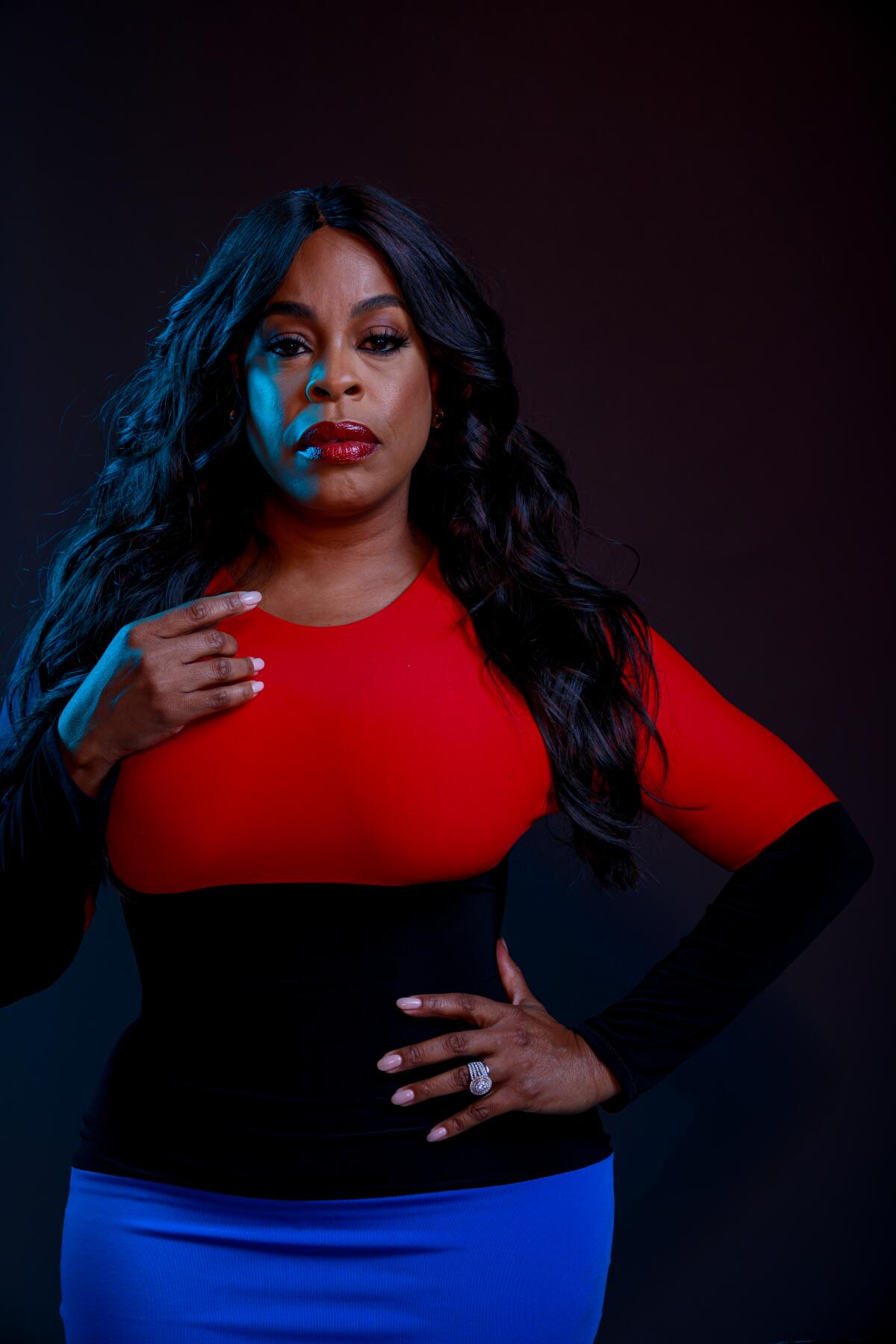Niecy Nash on her role in ‘When They See Us’: ‘Her pain was palpable’

- Share via
In the summer of 2013, Niecy Nash’s phone rang. “Can I speak to Niecy, please?” her caller asked. “This is Ava DuVernay.” Nash couldn’t have known that DuVernay was about to change the trajectory of her decades-long comedy-driven career by casting her as civil rights activist Richie Jean Jackson in “Selma.”
But Nash did know that a cold call from an ascending director wasn’t a bad thing. “I got out of bed and walked into the kitchen,” says Nash. “Then talked to her like I’ve known her my whole life. ‘Hey, girl! How you doin’?’ ”
Nash has been twice Emmy-nominated for her role as an overextended nurse in HBO’s now-defunct hospital comedy “Getting On.” It’s “Selma,” though, that launched her into be-careful-what-you-wish-for territory: “Lately, I’ve been playing a lot of troubled women, back to back,” says Nash, who abducts a baby in the upcoming Lifetime movie “Kidnapped: The Kamiyah Mobley Story.” Even on her regular gig, TNT’s “Claws,” her outsize manicurist character is roiling.
Then there’s her Emmy-nominated turn in DuVernay’s Netflix limited series about the 1989 Central Park Five jogger case, “When They See Us.” “I wanted to make sure that her love and pain were baked into the performance,” says Nash of her role as Delores, the desperate mother of Korey Wise, a then-16-year-old sentenced as an adult, who spent 11 ½ years in prison after being falsely convicted of the vicious attack.
Recently, at a West Hollywood photo studio, Nash began by addressing her reputation as one of the hardest-working women in show business. “People say that and sometimes it’s facetiously,” laughs Nash. “But in my mind? That’s a fact.”
How did you find out about Delores? Did you get another call?
What happened was I’d seen the story about the Central Park Five on a news show many years ago. I was so outraged by the injustice of it all, but I didn’t know what to do about it. So when I found out that [DuVernay] was doing this story, I called her.
Then what?
Then I texted her.
After that?
I slid into her DMs on Instagram. Then I put two cans together with a string, and I yelled into one hoping she was holding the other. [laughs] I said, “I have to be a part of this story. I’ll audition. I’ll play anyone.” And she responded, “Audition? Are you crazy? Here’s the role for you.” I thought, “Oh, I’m one of the moms.” I had no idea what playing Delores would require.
What were the special challenges?
Here’s what was lost on me: You’re playing real people who are still alive. Sometimes during filming, the exonerated men or their family members would be on set. I have a son who isn’t much older than Jharrel Jerome [who plays Korey]. I have personal experience with raising a black man in today’s climate. Then you have to marry all that with the character of a mother and what she was walking through until her son was released from prison. It wasn’t something you could breeze through. It wasn’t like, “Upset mom! I got this!”
Then there’s the part about being able to speak with Delores Wise. After I [got off] the phone with her, it was that hard gulp. Like, “OK, here we go.” To be able to carry her essence and energy through the run of this film was challenging.
What did you talk about?
I’m a little protective of her.
Understandable.
[pause] We talked about how she felt ostracized by the other mothers, the odd man out. She and [Korey] both had the idea that it really wasn’t the Central Park Five; it was four plus one. One thing I can tell you is that her pain was palpable, that the residue on the altar of her heart is still thick.
How did you approach the scene where Delores lashes out at Korey’s trans sibling?
What I tried to bake in [to that scene] was, “That’s my fear talking, not my love for you. My fear says, ‘If you walk out that door, I cannot protect you.’” Even in the darkest parts, I wanted to show her love for her children.
Has she reached out since “WTSU” premiered?
[quietly] She hasn’t yet. But I continue to hold space for her in my heart. There but for the grace of God go any of us. Know what I mean? I know what it’s like to not feel supported.
You’ve often said people didn’t think you were right for serious roles. Did this nomination stir any “I told you so” emotions?
When I started in this business, I said, “I really want to do drama.” People were polite, like, “We know your shtick — broad comedy.” And I was like, “Guys, I could do other things.” I’m so happy I hung in there and that there were those who gave me a chance. To be nominated in a dramatic category? That solidifies for me that you should always stick to how you see yourself even if others don’t see it.
More to Read
From the Oscars to the Emmys.
Get the Envelope newsletter for exclusive awards season coverage, behind-the-scenes stories from the Envelope podcast and columnist Glenn Whipp’s must-read analysis.
You may occasionally receive promotional content from the Los Angeles Times.










